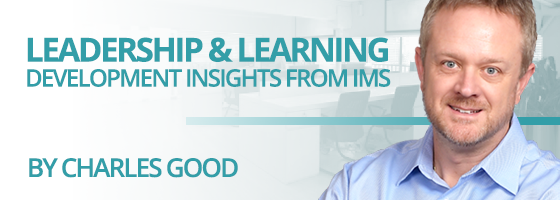Everyone can benefit from being coached. Yet, why do some still view it with shame? Organizations usually reserve coaching resources for leaders on the rise. And they don’t invest their resources in coaching leaders who are not going anywhere. Many leaders struggle with how to go from being coachable to developing others.
First, it is good to dispel some common myths around coaching. In their book, ‘Being Coachable,’ Scott Osman and Jacquelyn Lane provide some common misconceptions.
COMMON MISCONCEPTIONS ABOUT COACHING
MYTH 1: The coach is there to fix you
Scott and Jacquelyn draw a compelling analogy, likening coaching to physical therapy rather than surgery. It’s akin to regular therapy sessions where you collaborate on enhancing strength and flexibility. The therapist doesn’t repair you – you do. They guide and hold you responsible. Coaching operates similarly.
MYTH 2: Mentors do the same thing as a coach, and they do it for free
Mentoring involves offering career guidance based on the mentor’s experiences and creating opportunities as you forge your path. While a mentor can suggest, it’s up to the mentee to implement these suggestions.
Coaching focuses on specific goals and skills to enhance organizational performance and leadership. It’s a proactive collaboration that encourages shifting perspectives and creating new mental models. Coaches use their expertise to assist clients in achieving their goals.
MYTH 3: Your coach should have walked in your shoes
Most coaching involves identifying weak spots, changing behaviors, and reimagining goals—none of which carries an overlapping, specific industry prerequisite. Coaches with a variety of business experiences, meanwhile, can expose you to best practices from roles and sectors with which you may not be familiar.
BEING COACHABLE
Coachability refers to one’s readiness to maximize growth and development through coaching. It involves embracing feedback to gain insight into self-perception and how others perceive and interact with you.
Being coachable allows this insight to foster personal growth towards becoming your best self. Remarkably, leaders who achieve remarkable results quickly are those most open to coaching.
COACHING OTHERS
The expectation often arises when we coach others upon assuming a leadership role. As you embark on this journey, a pivotal question surfaces:
Will your coaching aim for development or performance?
Coaching for performance entails addressing specific issues or hurdles. It involves extinguishing or kindling the flames, a routine yet crucial aspect. Conversely, coaching for development shifts the focus from the problem to the individual tackling it, the one managing the blaze.
Reflect on a time when impactful coaching left a lasting impression on you. Odds are, it was a developmental coaching session. The emphasis lies in propelling you towards learning, growth, and advancement rather than solely resolving matters. Coaching should be a daily, informal act, not an occasional, formal “It’s Coaching Time!” event. You can build a coaching habit only if you understand and use the proven mechanics of building and embedding new habits
The essence of coaching lies in helping others and unlocking their potential.
I admire Michael Bungay Stanier’s framework outlined in his famous book, ‘The Coaching Habit.’ This approach is user-friendly and effective when interacting with others. It focuses on asking specific questions in a particular sequence. The initial three questions lay the groundwork for the coaching dialogue and are as follows:
KICKSTART QUESTION
What’s on your mind?
Because it’s open, it invites people to get to the heart of the matter and share what’s most important to them. You’re not telling them or guiding them. You’re showing them trust and granting them the autonomy to choose for themselves.
AWE QUESTION
And What Else?
When you use “And what else?” you’ll get more and often better options. Better options lead to better decisions. Better decisions lead to more tremendous success.
FOCUS QUESTION
What’s the real challenge here?
When discussing a challenge, realizing that what’s presented is only sometimes the core issue is vital. Rushing in to solve things often leads to chaos. This pivotal question helps avoid hasty actions, ensuring you tackle the root cause, not just the surface problem.
Starting with these three questions lays a solid groundwork with your coachee, steering your coaching relationship in the right direction, and will help you transition from being coachable to developing others.
To learn more about being coachable, listen to my conversation with Scott Osman and Jacquelyn Lane (Episode 109). To learn more about how to coach someone, listen to my discussion with Woody Woodward (Episode 65). You may want to also look at our previous article on Giving and Receiving Feedback.
ABOUT CHARLES GOOD
Charles Good is the president of The Institute for Management Studies, which provides transformational learning experiences that drive behavioral change and develop exceptional leaders. Charles is an innovative and resourceful leader who specializes in bringing people together to develop creative organizational and talent strategies that enable business results. His areas of expertise include assessing organizational skill gaps and leading the design, creation and delivery of high impact, innovative learning solutions that achieve business goals.
